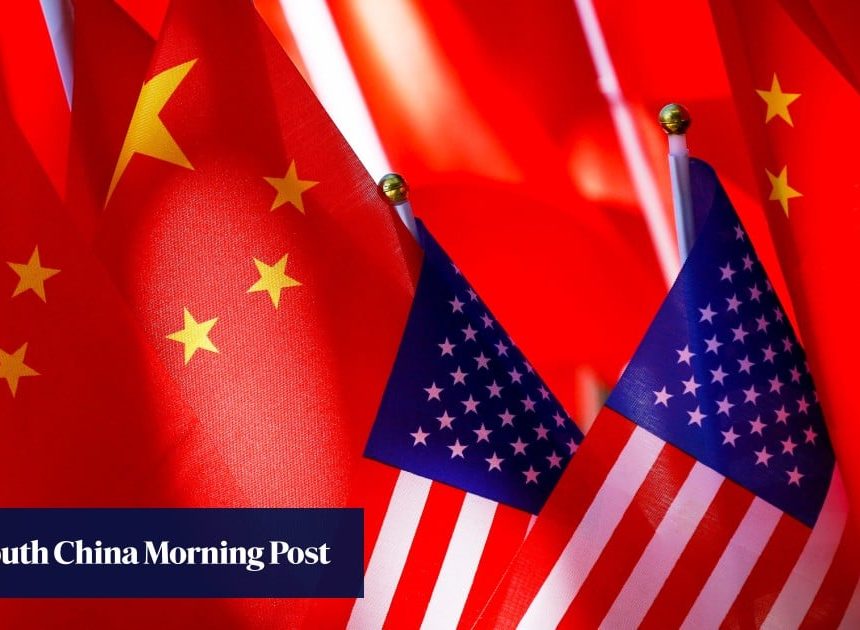US chip giant Nvidia will supply more than 260,000 of its most advanced artificial intelligence (AI) chips to South Korea’s government, as well as Samsung, LG, and Hyundai.
The companies will all deploy AI chips in factories to make everything from robots to autonomous vehicles.
“Just as Korea’s physical factories have inspired the world with sophisticated ships, cars, chips and electronics, the nation can now produce intelligence as a new export that will drive global transformation,”
Nvidia’s chief executive Jensen Huang said the deals meant that South Korea can “now produce intelligence as a new export”, days after Nvidia became the first in the world to be valued at $5 trillion.
Mr Huang did not disclose the value of the deal or when the projects can be expected.
Speaking at a CEO summit on the sidelines of Asia Pacific Economic Cooperation (Apec) in Gyeongju, South Korea, Mr Huang added that with the chips, companies would be able to create “digital twins” with other factories around the world.
These deals form part of Nvidia’s latest effort to expand AI infrastructure globally, to further integrate AI into products and services.
Nvidia has been striking international partnerships which helped it become the first company ever to be valued at $5tn (£3.8tn) on Wednesday.
The South Korea deals come as Nvidia grapples with the fallout of the China-US trade war.
China made up more than a tenth of Nvidia’s revenue last year, but the extent of China’s access to Nvidia’s chips has been a point of friction with Washington.
“We used to have 95% share of the AI business in China. Now we’re at 0% share. And I’m disappointed by that,” Huang said in Gyeongju on Friday.
Trump said after his meeting with Xi on Thursday that Beijing will hold talks with Nvidia to discuss sales of its chips in China.
Trump said the talks were between China and the US company, but that the US government will play the role of a “referee” of sorts.
On Friday, Huang said he would like to sell Nvidia’s state-of-the-art Blackwell chips to China, although the decision needed to be made by the US President.
The tech boss had no news on China sales, or the talks between the two leaders but that he hopes they’ll find a way to have new policies that allow chips back into China.
“It’s in the best interest of America to have the China market and it’s in China’s interest to have an American company bring technology to the country,” Huang said.
“We’d like to see American technology be the global standard.”
South Korea – which is already home to major semiconductor companies and vehicle manufacturers – wants to become a regional AI hub.
The country is the ideal place to expand AI infrastructure, according to the Nvidia CEO, because of its access to energy and land, and its ability to construct factories.
President Lee Jae Myung said he would prioritise AI investment after coming into office in the face of US tariffs.
With the Nvidia deal, the South Korean government plans to build computing infrastructure that it will control, a term known as “sovereign AI”.
More than 50,000 Nvidia chips will power data centres at the National AI Computing Center and facilities owned by South Korean companies like Kakao and Naver.
The chip giant is dependent on the tightly-knit supply chains that run through the Asia Pacific region.
Nvidia is primarily a chip designer, and so outsources most of its physical production to manufacturers like Samsung, SK Hynix and TSMC.
TSMC has been a critical partner for Nvidia, making the company’s most advanced AI chips, including its flagship Blackwell series.
Samsung makes parts for Nvidia’s H20 chips, a scaled-down processor made for the Chinese market under US export rules.
National security experts and some politicians have long voiced concerns about the US selling AI chips to China, saying that Beijing could use them to gain an advantage in AI, as well as in military applications.
Analysts say that US efforts to block China’s access to advanced computer chips have fostered innovation within China.
Both Huawei and Alibaba have unveiled their own chips that they say can rival Nvidia’s products for the Chinese market.
Beijing has also reportedly prohibited local firms from buying from Nvidia, urging them to buy from Chinese chipmakers to give its domestic tech industry a boost.
“We respect deeply the capabilities of China,” Nvidia’s Jensen Huang said on Friday.
Nvidia’s share price was this week further boosted by a wave of new deals, including partnerships with the US Department of Energy, Nokia, Uber, and Stellantis – moves aimed at reassuring investors that AI investments will deliver returns.
Hopes of a revival in China sales, following trade talks between Presidents Trump and Xi, also lifted its share price.
Additional reporting by Jaltson Akkanath Chummar


